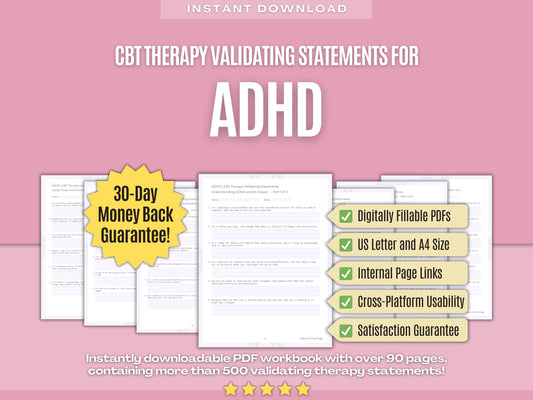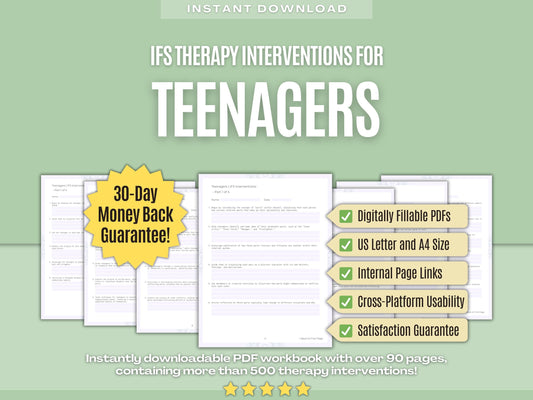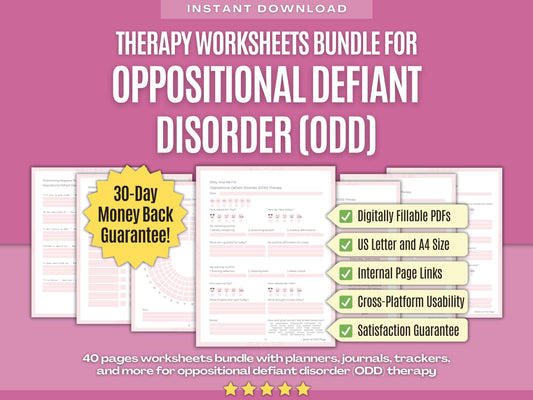Elevate Your Therapy and Guide Your Clients to Inner Healing with Our Couples Coping Skills! ✨
1. Effective Communication Skills
- Practice active listening by giving your full attention to your partner when they speak, making eye contact, and showing genuine interest in what they're saying.
- Validate your partner's emotions by acknowledging their feelings as valid, even if you don't necessarily agree with them, creating a sense of understanding and empathy.
- Take breaks during heated or emotionally charged discussions to cool down and gather your thoughts, preventing escalation and promoting more productive communication.
- Use mirroring or paraphrasing to reflect back what your partner has said in your own words, ensuring that you understand their perspective accurately and completely.
- Practice assertiveness by expressing your needs and boundaries clearly and respectfully, while also being open to compromise and negotiation.
- Practice empathy by trying to see things from your partner's point of view, even if you disagree, fostering a deeper connection and understanding in your communication.
- Practice patience and understanding during communication, recognizing that it may take time for both partners to fully express themselves and reach resolutions.
- Practice reflective listening by summarizing and reflecting back what your partner has said before responding, ensuring that you fully grasp their message and concerns.
- Practice problem-solving skills by focusing on finding solutions and compromises together, rather than getting stuck in blame or criticism.
- Practice patience and understanding during communication, recognizing that it may take time for both partners to fully express themselves and reach resolutions.
- Practice forgiveness and letting go of grudges or resentments that may hinder effective communication, focusing instead on moving forward and resolving conflicts.
Need more? Find all 500+ Coping Skills for Couples Therapy in our Digital Workbook!
2. Resolving Conflicts Constructively
- Practice active listening during conflicts, focusing on understanding your partner's perspective without interrupting or becoming defensive.
- Take breaks when conflicts escalate to give yourselves time to cool down and reflect before continuing the discussion.
- Use positive language and tone during conflict resolution, focusing on finding solutions rather than dwelling on past grievances.
- Take responsibility for your own actions and contributions to the conflict, rather than deflecting blame onto your partner.
- Avoid using hurtful language or resorting to personal attacks during conflicts, as this can escalate tensions and damage the relationship.
- Seek compromise and find win-win solutions that address both partners' needs and concerns.
- Practice forgiveness and let go of grudges or resentments that may linger after conflicts are resolved.
- Seek feedback from your partner on how conflicts are handled and be open to making adjustments based on their input.
- Practice mindfulness techniques, such as deep breathing or meditation, to stay calm and focused during conflicts.
- Practice reflective listening by summarizing your partner's perspective before responding, ensuring that you fully understand their point of view.
- Practice gratitude and appreciation for your partner's efforts in resolving conflicts and working towards mutual understanding.
Need more? Find all 500+ Coping Skills for Couples Therapy in our Digital Workbook!
3. Building Trust and Honesty
- Practice open and honest communication with your partner, sharing your thoughts, feelings, and experiences openly and transparently.
- Practice active listening during conversations with your partner, showing genuine interest in their perspective and validating their feelings.
- Be reliable and dependable in your actions, demonstrating that you can be counted on to support and be there for your partner.
- Be willing to apologize and take responsibility for any mistakes or wrongdoing, showing humility and a commitment to repairing trust.
- Set boundaries around privacy and personal space, respecting each other's need for autonomy while still maintaining open communication.
- Be honest and transparent about your feelings and concerns, even if they may be difficult to discuss, as honesty is essential for building trust.
- Show appreciation for your partner's honesty and transparency, acknowledging their efforts to build trust in the relationship.
- Be consistent in your behavior and actions, demonstrating reliability and trustworthiness in all aspects of the relationship.
- Practice vulnerability by sharing your fears and insecurities with your partner, allowing for deeper emotional connection and understanding.
- Practice self-awareness by reflecting on your own trust issues and insecurities, and how they may impact your relationship.
- Avoid manipulation or deceitful behavior, as this can damage trust and undermine the foundation of the relationship.
Need more? Find all 500+ Coping Skills for Couples Therapy in our Digital Workbook!
4. Cultivating Intimacy and Connection
- Prioritize quality time together, setting aside regular moments for meaningful connection and intimacy.
- Engage in activities that promote bonding and shared experiences, such as cooking together, taking walks, or participating in hobbies as a couple.
- Show affection and appreciation for your partner through physical touch, words of affirmation, and gestures of love.
- Explore new activities and experiences together, stepping outside of your comfort zones and discovering new ways to connect.
- Make time for intimacy and sexual connection, prioritizing physical closeness and pleasure in your relationship.
- Cultivate emotional intimacy by sharing your dreams, goals, and aspirations with your partner, fostering a sense of shared purpose and vision.
- Seek out opportunities for deep conversation and reflection, discussing topics that are meaningful and important to both of you.
- Practice empathy by putting yourself in your partner's shoes and understanding their emotions and motivations.
- Seek support from a couples therapist or counselor when facing challenges or obstacles in your relationship, as they can provide guidance and tools for cultivating intimacy and connection.
- Practice self-care individually to maintain emotional well-being and resilience, allowing you to show up fully in your relationship.
- Practice patience and understanding in your interactions with your partner, recognizing that building intimacy and connection takes time and effort.
Need more? Find all 500+ Coping Skills for Couples Therapy in our Digital Workbook!
5. Understanding and Fulfilling Emotional Needs
- Practice active listening to your partner's emotions, validating their feelings and demonstrating empathy.
- Prioritize quality time together to nurture emotional connection and intimacy in the relationship.
- Be attentive to your partner's nonverbal cues, such as body language and tone of voice, to better understand their emotional state.
- Create a safe and supportive environment for sharing emotions, free from judgment or criticism.
- Practice empathy by putting yourself in your partner's shoes and understanding their perspective and emotions.
- Seek to understand your own emotional needs and communicate them clearly to your partner.
- Set boundaries around emotional communication, ensuring that both partners feel respected and heard.
- Seek support from friends, family, or a therapist when facing challenges or conflicts related to emotional needs.
- Practice validation by acknowledging and accepting your partner's emotions as valid and important.
- Seek out opportunities for deep conversation and reflection, discussing topics that are meaningful and important to both of you.
- Practice active problem-solving when conflicts arise related to emotional needs, seeking solutions that honor both partners' feelings and perspectives.
Need more? Find all 500+ Coping Skills for Couples Therapy in our Digital Workbook!
6. Dealing with External Relationship Pressures
- Practice effective communication with your partner about external relationship pressures, such as family conflicts or societal expectations, to address them as a team.
- Prioritize your relationship by making decisions together and supporting each other in the face of external pressures.
- Practice assertiveness in advocating for your relationship needs and boundaries, even in the face of external pressures.
- Practice active listening when discussing external relationship pressures with your partner, allowing them to express their feelings and concerns.
- Seek professional help from a therapist or counselor when external relationship pressures become overwhelming or difficult to manage.
- Practice self-care to maintain your own physical, emotional, and mental well-being, which can help you better cope with external stressors.
- Practice resilience by staying positive and hopeful in the face of external relationship pressures, focusing on solutions rather than dwelling on problems.
- Set realistic expectations for yourselves and your relationship when dealing with external pressures, recognizing that you may not be able to control everything.
- Foster a sense of unity and teamwork in your relationship, reminding each other that you're in it together, no matter what external pressures arise.
- Practice forgiveness and let go of resentment or anger towards external parties who may be causing relationship pressures.
- Cultivate a sense of humor and lightheartedness in your relationship, finding moments of joy and laughter amidst external pressures.
Need more? Find all 500+ Coping Skills for Couples Therapy in our Digital Workbook!
7. Supporting Each Other's Goals and Dreams
- Practice active listening when your partner shares their goals and dreams, showing genuine interest and support.
- Offer encouragement and motivation to your partner as they pursue their goals, expressing belief in their abilities and potential.
- Celebrate your partner's successes and milestones along the way, acknowledging their hard work and dedication.
- Practice empathy by considering your partner's perspective and feelings as they pursue their goals, offering understanding and support.
- Be patient and understanding with your partner during times of setbacks or challenges, offering reassurance and encouragement.
- Practice compromise and flexibility in balancing your own goals with those of your partner, finding ways to support each other's aspirations.
- Practice gratitude for the support and encouragement you receive from your partner in pursuing your own goals and dreams.
- Encourage your partner to prioritize self-care and well-being as they pursue their goals, recognizing the importance of balance and self-care.
- Practice transparency and honesty in your communication about your goals and dreams, sharing openly with each other about your aspirations.
- Practice resilience and perseverance in the face of obstacles or setbacks, supporting each other through the challenges of pursuing your dreams.
- Continuously reassess and adjust your goals and dreams as individuals and as a couple, staying open to new possibilities and opportunities.
Need more? Find all 500+ Coping Skills for Couples Therapy in our Digital Workbook!
8. Overcoming Jealousy and Insecurity
- Practice open and honest communication with your partner about your feelings of jealousy and insecurity, expressing your concerns in a calm and respectful manner.
- Identify the underlying triggers for your jealousy and insecurity, such as past experiences or insecurities, to better understand and address them.
- Practice self-compassion by being gentle and understanding with yourself as you navigate feelings of jealousy and insecurity.
- Engage in activities that boost your self-esteem and confidence, such as exercise, hobbies, or spending time with supportive friends and family.
- Practice mindfulness techniques, such as deep breathing or meditation, to stay present and grounded when feelings of jealousy or insecurity arise.
- Challenge comparisons with others, recognizing that every relationship is unique and that your worth is not determined by external factors.
- Practice empathy by considering your partner's perspective and experiences, recognizing that they may also struggle with feelings of jealousy and insecurity at times.
- Practice forgiveness and let go of past hurts or betrayals that may be contributing to your feelings of jealousy and insecurity.
- Engage in couples therapy or relationship counseling to address underlying issues and strengthen your bond as a couple.
- Practice patience and understanding with yourself and your partner as you work through feelings of jealousy and insecurity together.
- Cultivate a sense of independence and self-reliance in your life, finding fulfillment and happiness outside of your relationship.
Need more? Find all 500+ Coping Skills for Couples Therapy in our Digital Workbook!
9. Self-Care and Individual Growth
- Prioritize self-care by making time for activities that nourish your mind, body, and spirit, such as exercise, meditation, or hobbies.
- Set boundaries with work, family, and social commitments to ensure you have time for yourself and your personal growth.
- Engage in regular self-reflection to gain insight into your values, beliefs, and goals, and identify areas for personal growth.
- Practice gratitude by focusing on the positive aspects of your life and expressing appreciation for the blessings you have.
- Practice self-compassion by being kind and understanding towards yourself, especially during times of struggle or difficulty.
- Cultivate hobbies and interests that bring you joy and fulfillment, allowing you to explore your passions and creativity.
- Seek out opportunities for solitude and quiet reflection, allowing yourself space to recharge and reconnect with yourself.
- Engage in activities that promote relaxation and stress relief, such as yoga, massage, or spending time in nature.
- Seek out therapy or counseling to explore deeper issues and gain support in your personal growth journey.
- Practice self-care rituals, such as regular baths, massages, or pampering sessions, to nurture your body and soul.
- Connect with your spirituality or higher power, if that is meaningful to you, as a source of strength and guidance.
Need more? Find all 500+ Coping Skills for Couples Therapy in our Digital Workbook!
10. Celebrating Achievements and Milestones Together
- Take time to acknowledge and celebrate each other's achievements, no matter how big or small, as a way to show support and appreciation.
- Express genuine pride and admiration for your partner's accomplishments, recognizing the effort and dedication it took to achieve them.
- Take photographs or videos to capture the memories of special milestones, creating keepsakes that you can look back on and cherish in the future.
- Write love notes or letters expressing your pride and appreciation for your partner's accomplishments, letting them know how much their success means to you.
- Host a joint celebration with friends and family to share in the joy of your achievements as a couple, strengthening your support network and sense of community.
- Create a gratitude jar or journal where you can write down and celebrate the things you're grateful for in your relationship, including each other's achievements and milestones.
- Create a scrapbook or memory book together to document your journey as a couple, including photographs, mementos, and notes commemorating your achievements and milestones.
- Host a themed party or event to celebrate a major achievement or milestone, incorporating elements that reflect your shared interests and values.
- Create a tradition of reflecting on and setting new goals together after celebrating each achievement, keeping the momentum going as you continue to grow and evolve as a couple.
- Attend workshops or seminars together to learn new skills or gain insights that can help you achieve your goals as a couple, celebrating the opportunity to grow and learn together.
- Create a shared vision board or vision statement for your relationship, celebrating the achievements you hope to accomplish together in the future and the journey you've embarked on as a couple.
We hope that our coping skills for Couples therapy will help you to elevate your therapy practice and guide your clients to inner healing! Do you need more coping skills for Couples therapy? Find them all in our Digital Workbook! Or do you have any questions or suggestions for us? Please feel free to contact us at any time!


















